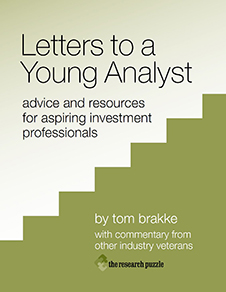
- Tuesday, November 23rd, 2010
- highlighting your favorites
-
You might suppose from the last postingthe research puzzle | It was about a journey “into the stacks.” that I love nothing more than having a book in hand. These days, books have gone electronic, and one of the most interesting facets of the Kindle, the leading e-reader, is that you can see the passages that are commonly highlighted by other readers who have chosen to share their mark-ups (and the ones who don’t realize that they are doing so).
Let’s leave the privacy issues to others. Why would you want to see those highlights? Do you really want to be reading along and notice that there’s a big block of highlighted text (on the Kindle, shown via gray dashed underlining) upcoming? “Oooh, here comes a good part,” you might say to yourself. But for what benefit?
Not only have you removed the element of surprise (and perhaps joy) from the reading experience, but you’ve traded part of your judgment for that of the crowd. It’s always good to know the conventional wisdom and fine to hew to it for unimportant matters, but for critical issues, it’s best to try to figure out things for yourself before looking to others.
I never wanted to buy used texts when I was in school, because I didn’t know who had marked them up. I’d come to think of the person who highlighted words or jotted in the margins as either a genius or a complete dolt, and found it was better to just approach the text myself, without the interpretation of others.
However, if you know who held that book before you, and you’re quite sure they are a genius, or at least you’ve decided you want to know how they think, that’s a different story. I bought some books from the library of an author, and his notations tell me something about where he was in his thinking and how he processed information. They are points of reference for me in understanding his work.
In the investment world, would you want to see everyone’s highlights on a brokerage report or a company filing? Again, that’d be interesting at a point in the process, but I’d want to do my own work first. I suppose I’d jump at the chance to see Warren Buffett’s jottings from those quiet times of analysis in his office that we’ve read about, but if he’s lumped in with all of the others from Omaha or Nebraska or the world, I don’t think I’ll learn a lot.
Popularity drives most of our electronic storehouses of information, in one way or another. (Yes, you’ll see “most popular posts” and “tom’s favorites” in the right-hand margin.) Granted, when it’s our own content, we all want nothing more than to get the benefit from the voting of the crowd (and ascribe it to “wisdom”), and to see that we have the most likes or retweets or the highest ratings. And as a user of content, when shortcuts are in order it can save some time to see what everyone else thinks before deciding what you think.
But if you develop that dependency, you will find yourself playing someone else’s game in someone else’s world, not your own. It’s best to highlight your own favorites, and then see where you sit versus others. Easy to say and increasingly hard to do, because the electronic world is structured to pull you in the other direction.
